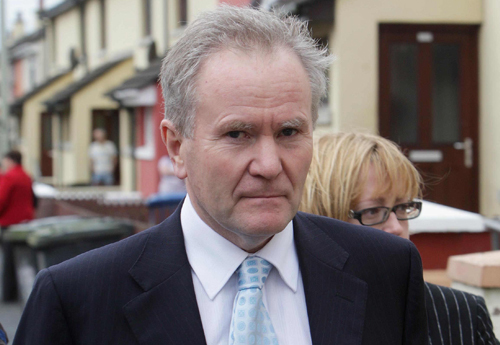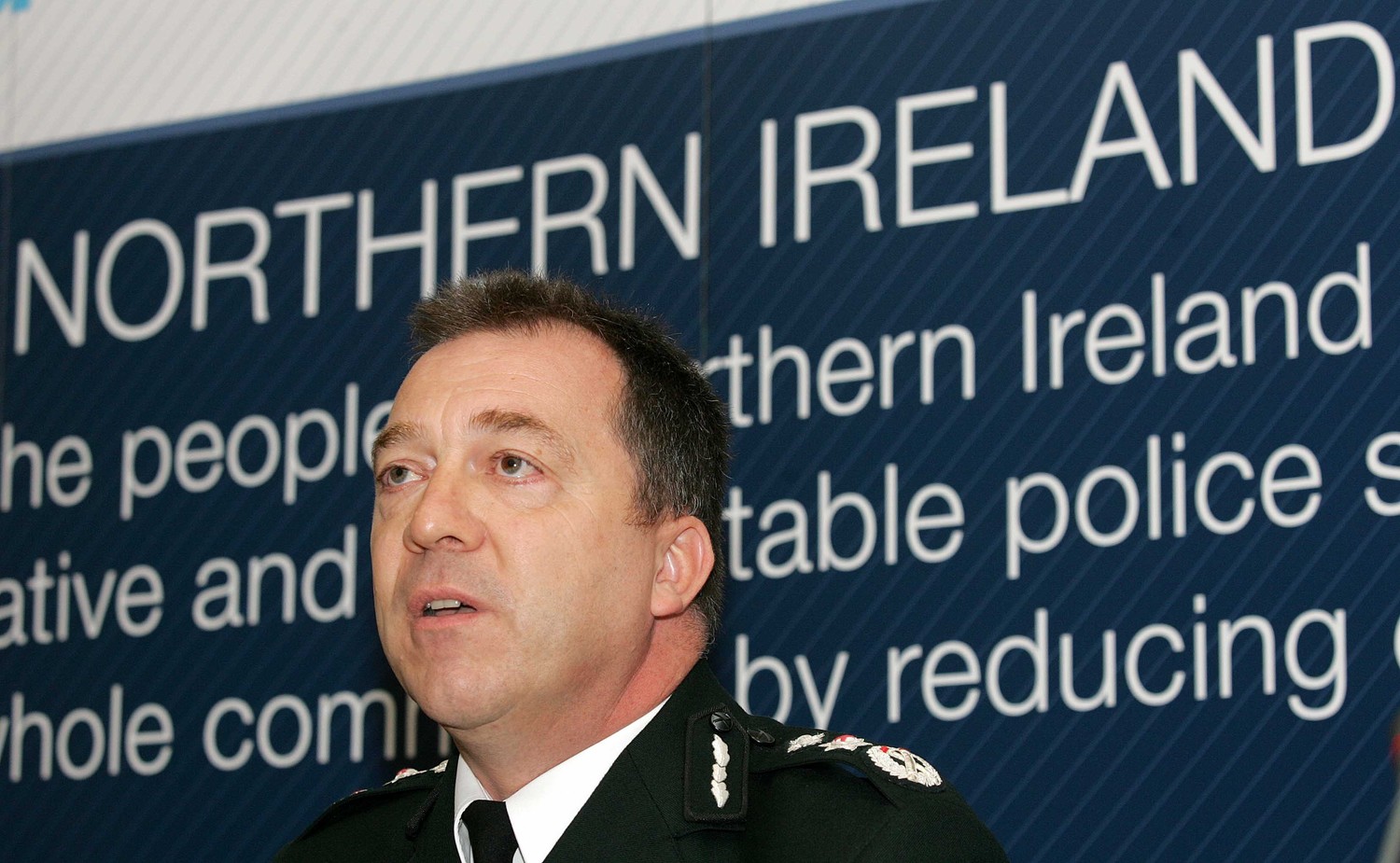A DISPUTE over three of the most controversial security force killings of the Troubles has left Northern Ireland’s senior coroner John Leckey and Chief Constable Matt Baggott at loggerheads.
Mr Leckey is due to open inquests into the RUC killings of six men in incidents in Co Armagh 30 years ago – but wants answers first as to how former members of the force’s Special Branch have been chosen by the chief constable to decide what sensitive information should be disclosed.
The request for answers from the chief constable came last month after Mr Leckey was informed that four former Special Branch officers and a fifth policeman, who worked inside RUC intelligence, had been given the task of trawling through top secret intelligence files relating to the 1982 killings and deciding what evidence should be disclosed to inquests.
The admission that former Special Branch officers had been given such a key role in deciding what information is to be disclosed to the inquests has caused anger among the families of those killed because of the central role that the controversial police unit played in their deaths.
Mr Leckey’s inquests are to examine the deaths of:
:: Unarmed IRA men Eugene Toman, Sean Burns and Gervaise McKerr shot dead on November 11 1982 near Craigavon;
:: Teenager Michael Tighe on November 24 1982 on a farm near Lurgan; and
:: Unarmed INLA members Seamus Grew and Roddy Carrol on December 12 1982 near Craigavon.
STALKER REPORT KEY TO `SHOOT TO KILL` INQUESTSThe shootings caused controversy in 1982 after it emerged that the RUC officers involved had been instructed by their Special Branch superiors to deliberately lie to cover-up the true circumstances surrounding the killings.
A key part of the evidence to be heard in the forthcoming inquests relates to a report written by then Greater Manchester Deputy Chief Constable John Stalker, who had been called in to investigate the shootings in 1984.
Stalker’s report has been kept under wraps for nearly 30 years after he was dramatically removed from the investigation in 1986 shortly before his findings were due to be published.
He later wrote that he only came to realize the overwhelming influence Special Branch had over the rest of the RUC when his investigation started.
“The Special Branch targeted the suspected terrorists, they briefed the officers, and after the shootings they removed the men, cars and guns for a private de-briefing before CID officers were allowed any access to these crucial matters,” he said.
The inquests into the six killings have become the longest of their kind in British legal history.
But the legal case took another twist last month when a preliminary hearing was told that the chief constable had put former Special Branch officers in charge of deciding what information from the Stalker report should be disclosed to the inquest.
The disclosure led the coroner to ask the chief constable to provide him with information relating to the role the former officers had played in Special Branch.
There is no suggestion that the former Special Branch officers were involved in the 1982 incidents.
However it has now emerged that Mr Baggott has refused Mr Leckey’s request.
In a letter to the coroner’s office, a lawyer acting for the PSNI wrote:
“It is not accepted that the Senior Coroner has power to direct inquiries to the Chief Constable in respect of his staff or the contractors he engages to assist in the discharge of his statutory functions.”
Responding to concerns expressed by Mr Leckey and the families’ legal teams at protracted delays in the PSNI handing over sensitive information to the coroner, it said:
“The suggestion that an inordinate period of time has passed without the issue being addressed by the Chief Constable is simply not correct.”
The lawyer also said officials from the coroner’s office had not voiced concerns previously after having personally met the former Special Branch officers during a visit to a police station where the Stalker files are held, and said:
“The Chief Constable has expressed his surprise at the interrogatories you have now furnished on this point given the constructive engagement between your counsel and the support staff that has facilitated the rapid progression of the disclosure process in this, and other, inquests.”
The correspondence states that Mr Baggott does not believe that the former role of the Special Branch officers is relevant to the forthcoming inquests and “is not minded to release information from the personnel records of former police officers in the absence of consent from the individuals concerned.”
The letter also stated that Mr Baggott had a legal obligation to protect the rights of the officers involved in the 1982 shootings, and concluded:
“The Chief Constable also has broader substantive Article 2 (right to life) duties in respect of those who were involved in the 1982 incidents and to that end he must ensure that the discharge of the section 8 disclosure process is appropriately conducted in order to minimize any risks to police or other personnel.”


